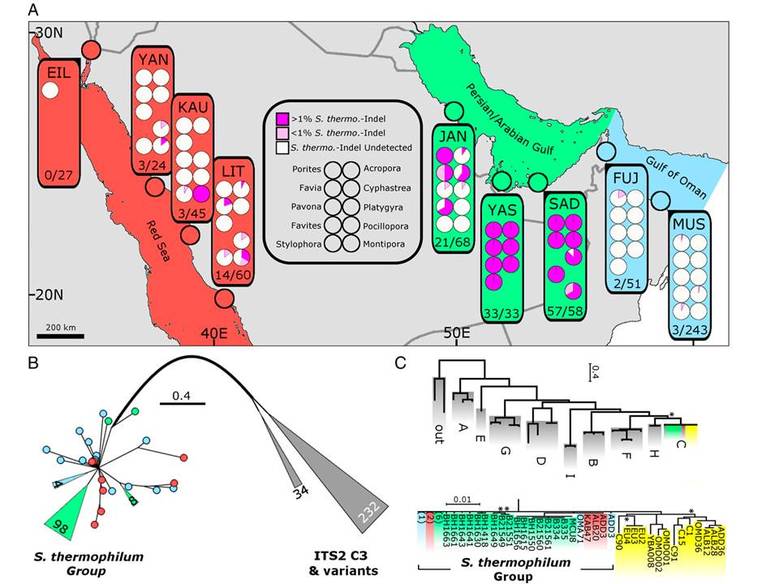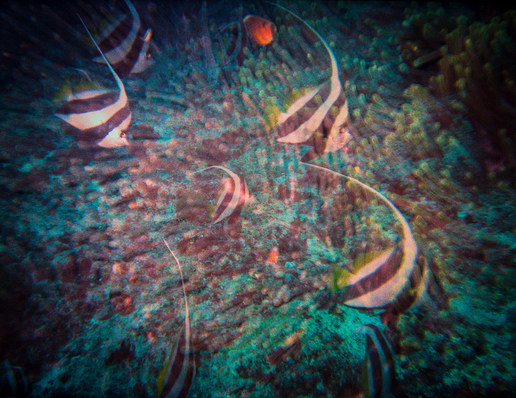Natural Sciences Climate
Ancestral genetic diversity associated with the rapid spread of stress-tolerant coral symbionts in response to Holocene climate change
Significance Reef corals in the Persian/Arabian Gulf (PAG) withstand exceptionally high salinity and regular summer temperatures of ∼35 °C that kill conspecifics elsewhere. These thermotolerant communities established themselves within only ∼6,000 y under the pressure of rapid climate change and can therefore inform how other coral reefs may respond to global warming. One key to the thermotolerance of PAG corals is their symbiosis with Symbiodinium thermophilum. Phylogeographic evidence indicates that this symbiont represents a stress-tolerant subpopulation of an ancestral taxonomic group with surprising genetic diversity that exists at barely detectable levels outside the PAG. Our results highlight the critical importance of present-day biodiversity for future adaptation to climate change for coral reefs and ecosystems in general.
The results show
|
|
Reference:
Benjamin C. C. Hume, 4416–4421, doi: 10.1073/pnas.1601910113 You may also want to read : |

